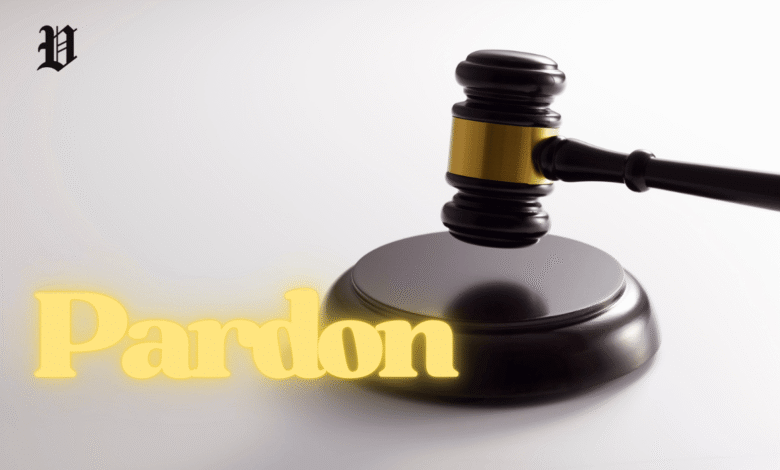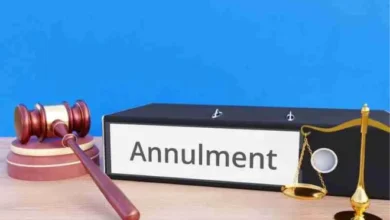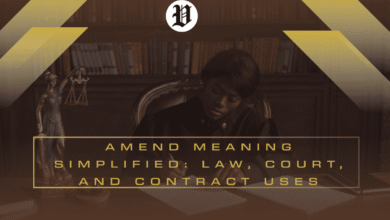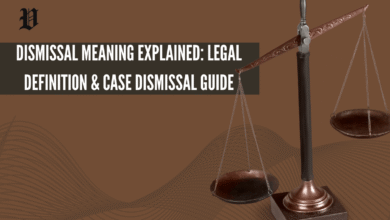Pardon Meaning & Definition Explained

Imagine this: You’re watching a true crime documentary late at night, and the plot twists when the governor pulls out a pardon like some kind of legal ace up the sleeve. Suddenly, years behind bars vanish, and the person’s life gets a do-over. It’s dramatic, right? That’s the kind of real-world magic—or controversy—that pardons bring to the table.
I’ve been teaching criminal law for over a decade now, and every time I dive into pardons with my students, their eyes light up. It’s not just legalese; it’s about second chances, political gambles, and the messy human side of justice. In this article, we’ll break down the pardon definition, unpack its meaning in law, and see why it still stirs up so much chatter around water coolers and courtroom benches.
What Is a Pardon? Getting Down to Brass Tacks
Okay, let’s cut to the chase. A pardon is basically the government’s way of saying, “Hey, we get it—you messed up, but we’re letting it go.” It’s an official act of forgiveness for someone who’s already been convicted of a crime.
More precisely, the legal definition of pardon boils down to an executive branch decision that wipes away the punishment tied to that offense. No trial redo, no innocence declared—just relief from the hammer of the law. I’ve seen folks in my classes nod along here, realizing it’s less about “not guilty” and more about “enough already.”
These things trace back centuries, from medieval kings doling out favors to modern leaders using them as olive branches. In the U.S., they’re a constitutional perk, but everywhere, they’re a reminder that justice isn’t always black and white.
The Pardon Meaning in Law: Mercy Meets Reality
So, what does a pardon mean in the grand scheme? In the world of criminal law, it forgives the penalty but leaves the crime’s shadow intact. You don’t get a “never happened” stamp; you get a “we’re done punishing you” note.
That’s the nuance that trips people up. It restores some freedoms—like voting or owning a gun in many cases—but it doesn’t scrub the past clean for every purpose. Governments lean on this power to right wrongs, reward reform, or even nudge society forward after tough times.
From my experience advising on clemency petitions, the process is no cakewalk. Applications stack up, advisors pore over records, and decisions hinge on everything from remorse to public good. It’s mercy with a magnifying glass.
How Governments Pull the Pardon Lever
Worldwide, heads of state or governors hold the keys to this door. In America, the Constitution hands it to the executive branch, creating a safety valve for the system.
Federally, it’s for crimes against the nation; states handle their own messes. This split keeps things nimble but can breed inconsistencies— one state’s mercy might be another’s hard line.
At its best, the pardon in criminal law is about growth. It says people evolve, mistakes don’t define us forever, and sometimes the sentence was too harsh anyway. I’ve had students debate this for hours, and it always circles back to empathy.
The Drama of Presidential Pardons
Ah, the presidential pardon—now we’re talking headlines. Tucked into Article II of the Constitution, it lets the commander-in-chief grant reprieves for federal offenses, impeachment aside.
Presidents don’t go rogue; most run it by the Justice Department’s pardon office for vetting. But they can sidestep if the mood strikes, turning it into a bold stroke of leadership.
Remember Gerald Ford pardoning Richard Nixon in 1974, right after Watergate blew up? Ford called it a way to heal the nation, dodging a trial that could’ve dragged everyone down. Folks were furious—smacked of a get-out-of-jail-free card—but it let the country exhale and move on.
Or Jimmy Carter’s big move in 1977, offering a blanket pardon to Vietnam draft dodgers. Hundreds of thousands of guys who’d fled or resisted got a pass, closing a painful chapter. It was less about individuals and more about mending a divided America. These stories? They make the law feel alive.
Breaking Down the Types of Pardons
Not every pardon looks the same—they’re customized for the moment. Knowing the flavors helps you see why one fits a situation better than another.
Let me lay it out in a simple table, like I do on the board for my classes:
| Type of Pardon | Description |
| Full Pardon | The gold standard: Total forgiveness, no penalties left hanging, and rights like voting snap back into place. It’s the ultimate “all clear,” assuming the person’s turned a corner. |
| Conditional Pardon | Mercy on probation—think “do good for five years, or it’s off.” Great for guiding reform, but it keeps the pressure on if someone slips. |
| Blanket Pardon | A wide-net approach for crowds who’ve done similar things, no deep dives needed. Carter’s draft dodger wave is the poster child—quick, collective compassion that skips the paperwork pile. |
Spot the full pardon meaning there? It’s the deepest cut, a full-throated vote of confidence. These options let leaders mix toughness with tenderness.
Why Pardons Pack a Legal Punch
Legally speaking, the significance of a pardon is huge—it slams the door on further punishment, from prison to probation. Once it’s official, good luck undoing it; courts treat them as ironclad.
But here’s the rub: It mends ties with the state, not always with the world. Jobs, licenses, or even family dynamics might still feel the echo. In pardon in criminal law, it’s a bridge, not a teleport.
Over the years, I’ve watched pardons reshape lives in quiet ways. A restaurateur with a decades-old drug rap gets one and expands his business—small wins that ripple out.
The Truth About Criminal Records and Pardons
Does a pardon erase that ugly mark on your record? Short answer: Not quite, but it softens the blow big time.
Federally, the conviction stays noted as “pardoned,” which is worlds better than “felon.” States vary—some seal it away for employers, others don’t. It’s designed for fresh starts without total amnesia.
I tell my students: Think of it as archiving the file, not shredding it. Accountability lingers, but so does opportunity. That’s the smart balance.
Pardon vs. Amnesty vs. Commutation: Sorting the Clemency Crew
Pardons play in a bigger band of relief options, each with its own beat. Mixing them up is common, so let’s clarify.
Amnesty’s the group hug, often for political hot potatoes, skipping charges entirely. Commutation’s more like a sentence trim—guilt’s the same, just less time.
Here’s a side-by-side to keep it straight:
| Aspect | Pardon | Amnesty | Commutation |
| Scope | Targets specific folks or small groups post-conviction; full forgiveness package. | Sweeps in masses, usually pre-charge for big-picture reasons like wars or protests. | Hits individuals; chops sentence length, no guilt wipe. |
| Record Effect | Seals or marks as pardoned; rights often rebound. | No conviction trail usually; like it never sparked. | Guilt sticks around; just early out. |
| Real-Life Vibe | Nixon’s post-Watergate shield—personal lifeline. | Carter’s Vietnam crew—national reset button. | Clinton easing non-violent terms—practical mercy. |
| Bottom Line | Ends the punishment story. | Dodges the story starting. | Rewrites the ending, not the plot. |
Pardon vs. amnesty? One’s intimate, the other’s orchestral. Nail that, and you’re golden.
Stories That Stick: Pardons in Action
Nothing beats a good yarn to make this real. Ford’s Nixon call? It was raw politics wrapped in patriotism—saved the Oval Office from circus vibes but cost Ford the next election. Ouch.
Jump to 2017: Donald Trump pardoned Joe Arpaio, the Arizona sheriff dinged for defying court orders on immigrant profiling. Supporters cheered it as standing firm; detractors yelled cronyism. Either way, it lit up cable news, showing pardons as cultural lightning rods.
Don’t forget the under-the-radar ones. A guy I knew from pro bono work—wrongly nailed for theft in the ’90s—got a full pardon after new evidence surfaced. He rebuilt his family, started a mentorship program. That’s the quiet power, the stuff that keeps me teaching.
Pardons in Our Polarized World
Fast-forward to today, and pardons are still tinderboxes. Think of the preemptive ones floated around family members in high office—echoes of old scandals, fresh outrage. They force us to wrestle with fairness head-on.
For law buffs, the pardon meaning in law is a lens on equity. It’s not perfect, but it humanizes the machine. In class, we role-play scenarios: Would you pardon a whistleblower? A celebrity slip-up? It gets heated, and that’s the point.
Bottom line: A pardon elevates without illusion. It honors change while honoring truth.
FAQ: Quick Hits on Your Pardon Puzzles
I get these questions all the time—let’s knock ’em out.
What is a pardon in law?
It’s the executive’s green light to forgive a crime’s punishment after conviction, blending compassion with legal closure.
What does a pardon mean for someone who’s served time?
It lifts the ongoing burdens, like parole, and can unlock rights— a real breath of fresh air, though echoes remain.
Legal definition of pardon: Can you sum it up?
In a nutshell, it’s official remission of an offense’s penalties, straight from the top, without flipping the guilt verdict.
What is the full pardon meaning?
Pure relief: All ties cut, rights restored, no ifs or buts— the cleanest slate possible short of acquittal.
What does a presidential pardon do?
It nullifies federal penalties at the president’s say-so, potentially mending a life derailed by the system.
Does a pardon erase a conviction?
Kinda-sorta: It hides or notes it for most eyes, but doesn’t vaporize the history—balance of grace and grit.
What is a blanket pardon definition?
Mass forgiveness for a bunch in the same boat, like evaders of a draft—efficient wave of goodwill.
Pardon vs. amnesty: How do they stack up?
Pardons fix post-conviction for select souls; amnesty heads off charges for crowds, often in turbulent times.
Pardon in criminal law: Who’s eligible?
Anyone convicted, really, if they’ve shown reform or the case screams injustice— but approvals are picky.
What is the difference between a pardon and commutation?
Pardon erases the debt entirely; commutation just pays down the principal—guilt hangs on.
Final Thoughts: Justice with a Heart
Pardons? They’re the soft underbelly of a tough system, proof that law can bend toward humanity. From Nixon’s storm to a neighbor’s quiet comeback, they weave stories of redemption.
If this sparked something for you—maybe a debate with friends or a deeper dive into your state’s rules— that’s the goal. I’ve loved sharing these nuggets; hope it feels like a chat over coffee. Justice isn’t static; it’s us, evolving one pardon at a time.





One Comment